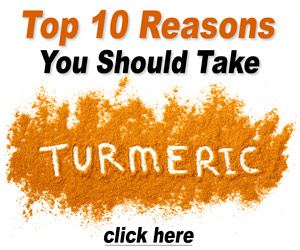What Are Adhesion Molecules?

Cell adhesion molecules (CAMs) are receptors present in cell membranes. They are essential for cells to interact and to hold tissues together. The four families of CAMs are: (iii.56)
- Integrins
- Cadherins
- Immunoglobulin Superfamily CAMs (IgCAMS)
- Selectins
One of the most important jobs of CAMs is to help build and maintain the extracellular matrix. Composed of all the connective tissue (including teeth, bones, membranes, and cartilage), the extracellular matrix separates and supports organs and tissues. CAMs also enable proper functions between cells: (iii.56)
- CAMs work with the endothelial cells that line blood vessel walls as well as growth factors and cytokines during acute inflammation. They help regulate, organize, and move immune system cells to infected/injured tissue to get rid of harmful substances.
- Essential components of platelet membranes, CAMs enable platelets to stick together. They help form the clots that stop bleeding in wounds.
- NCAMs play important roles in helping build nervous system structures throughout life. They are also essential signaling molecules. One example is how N-cadherin remodels bridges in the space between neuron brain cells to adjust for increases in brain activity. These adjustments help transmit brain signals more efficiently.
What Happens if Adhesion Molecules Are Unregulated?
Unregulated production of CAMs is involved in may diseases, including cancer. In heart disease, over production of adhesion molecules causes plaque build-up in arteries. (iii.56, 57)
Microbes can directly and indirectly stimulate production of CAMs. For instance, they induce the inflammatory transcription factor NF-κB and cytokine proteins. In turn, this causes increased production of adhesion molecules. The clinical effects are greater susceptibility of cells to infection, as well as more severe symptoms and outcomes. For example: (iii.59)
- Increased risk of bacterial infection after a viral infection. (iii.58, 59)
Higher CAM levels due to the parasite that causes cerebral malaria increases severity of the disease. Infected cells stimulate inflammatory CAMs and cytokine proteins in small blood vessel cells in the brain. Even if antimalarial drugs kill all the parasites, the damage from the inflammation increases the risk of death. (iii.59)
Effects of Turmeric and Turmeric Compounds on Adhesion Molecules
Curcumin suppresses cell adhesion molecules stimulated in inflammatory conditions such as cancer, inflammatory bowel disease, and atherosclerosis. However, it does not appear to affect normal expression of these vital molecules. (iii.56, 60, 61)
Curcumin prevents certain pathogens (such as the fungus Candida albicans) from adhering to and infecting cells. In malaria infections, curcumin blocks CAMs and their brain-damaging effects. Curcumin could also reduce the risk of upper respiratory tract infections after having the flu. (iii.58, 59, 61)
Join the 1000s of People Who Are Discovering the Benefits of Turmeric.

Healthceuticals® Turmeric Curcumin Complex
100% Certified
Organic ingredients
- Organic Turmeric Extract - standardized to 95% curcuminoids.
- Organic Whole Turmeric - provides full spectrum antioxidant, anti-inflammatory turmeric benefits, including turmerones and numerous vitamins, minerals, and phytonutrients
- Organic Black Pepper Extract - standardized to 95% piperine; dramatically enhances bioavailablity.
- Organic Phospholipids - markedly improve absorption.
- Organic Ginger - works synergistically with turmeric to provide more powerful benefits.
- Absolutely FREE of potentially harmful additives and fillers such as magnesium stearate.




